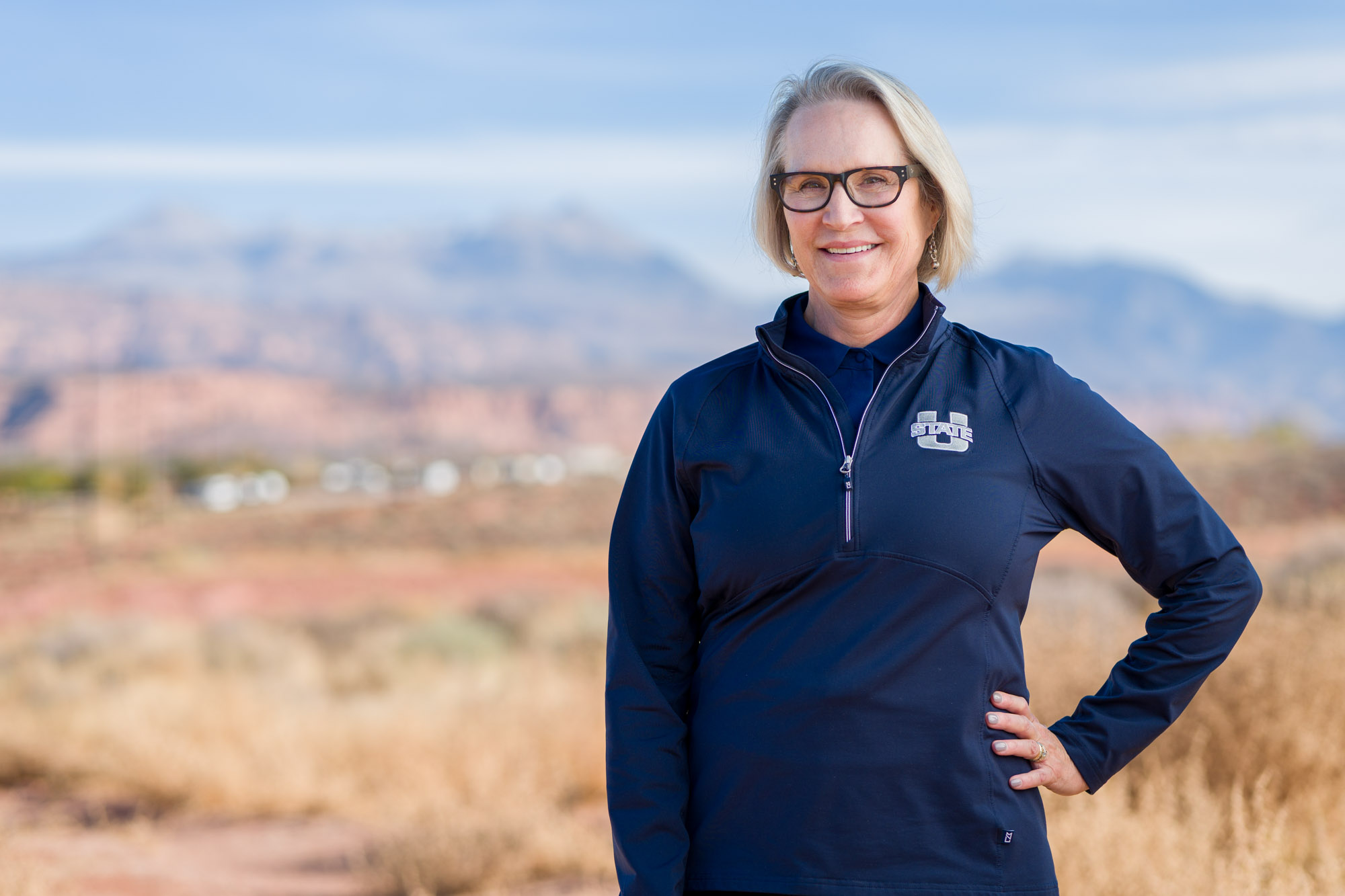In August, Utah State University hired Elizabeth Cantwell as the 17th university president, succeeding Noelle Cockett, who was in the position since 2017. In November, Cantwell held “listening sessions” at USU Eastern, Blanding, and Moab; while in Moab, she chatted with the Moab Sun News about her vision for the local campus, which this year saw record enrollment rates.
USU is a land-grant university, which means (according to the Association of Public and Land-Grant Universities) it’s an institution designated by state legislature or congress to receive federal support. Those benefits come through the “Morill Act,” which defines that the original mission of these universities was to teach agriculture, military tactics, and the mechanic arts, as well as classical studies, so “members of the working class could obtain a liberal, practical education.”
Moab Sun News: What role do you think the Moab campus plays in the larger USU community?
Cantwell: It’s obviously a pretty small regional entity, serving the needs of a small but growing and unique area that the state pays attention to, that people outside of Utah know a lot about.
This is the kind of place where we have a physical presence, and we just made it incredibly beautiful. Places like this are hubs for three things in that land grant sense: How do we take the research being done at USU (which is mostly done at Logan, but not exclusively) and through this campus, deliver it to the Moab region? How do we make sure we’re talking with companies that will hire people locally, so we have programs to train people here, to get their education here, and to get a job here?
And then, how do we work with this place as a community hub, to understand what the challenges and issues and desires are on the part of the community? How do we reach out across the whole USU system and figure out how to engage?
MSN: I wanted to ask you about growth, too: How will you manage growth at the USU Moab campus to keep it sustainable?
Cantwell: I don’t know much about the actual, you know what the growth patterns are for Moab per se, but I would say the university should sort of keep step with that growth.
But I’ll give you an example I just gave earlier. I imagine, although I really haven’t done my homework, that some of that growth is in tourism and hospitality. And what does that mean? That doesn’t necessarily mean growth in full time permanent residents, but it does mean growth in certain kinds of jobs.
Then the sustainability question there for an academic institution is this combination of workforce sustainability—we don’t want to train people who can’t live here—and also climate and environmental sustainability. It’s what I call environmental resilience. We have a lot of research in that area: How do we deliver the results of those types of projects, to the people who not just live here, but who run Moab?
The region determines for itself its perspective on sustainability. What we can do is bring an awful lot of research to bear on that perspective, once the region has kind of made its determination.
There are a lot of different factors that influence what a region like this is thinking about itself. But we hope to be part of that picture in terms of all of the work that we’re doing in natural resources, in extractive resources on the engineering side, on the environmental science side, on the land use and water use side, to just sort of explain what we’re seeing.
MSN: How do you think USU campuses impact the communities they’re in?
Cantwell: I will speak broadly for university campuses, because I don’t think we’re different. We’re a significant employer. We are educating your children. We’re also educating yourselves, as you get to the point where you want another degree or another certificate.
We’re enhancing your capacity as citizens to move to the next thing that you want to move to. We’re also the creators of new knowledge. And for land grant universities, this service model, our job is to use that to serve the communities that we’re in. So we really measure ourselves around, what’s the public impact of the research that we do?
MSN: Do you have any other big projects at USU?
Cantwell: I’m not looking at building a new campus at this point. Big projects are determined by the community, so we’re doing these listening sessions all around our campuses.
The big stuff coming down the pipeline for all of us is what I call Fourth Industrial Revolution—that means AI, it means autonomy, it means advanced manufacturing. All those modalities, how are they going to influence the life that we live, and how do we want to design our own approach to using those new technologies and new things, as opposed to waiting for it to happen?
All of that is going to come for us, and USU is a core part of thinking about that future, and embodying that in how we have conversations across the state.
This interview has been edited for length and clarity.
Next article:

Local author publishes fourth book in series
____________




